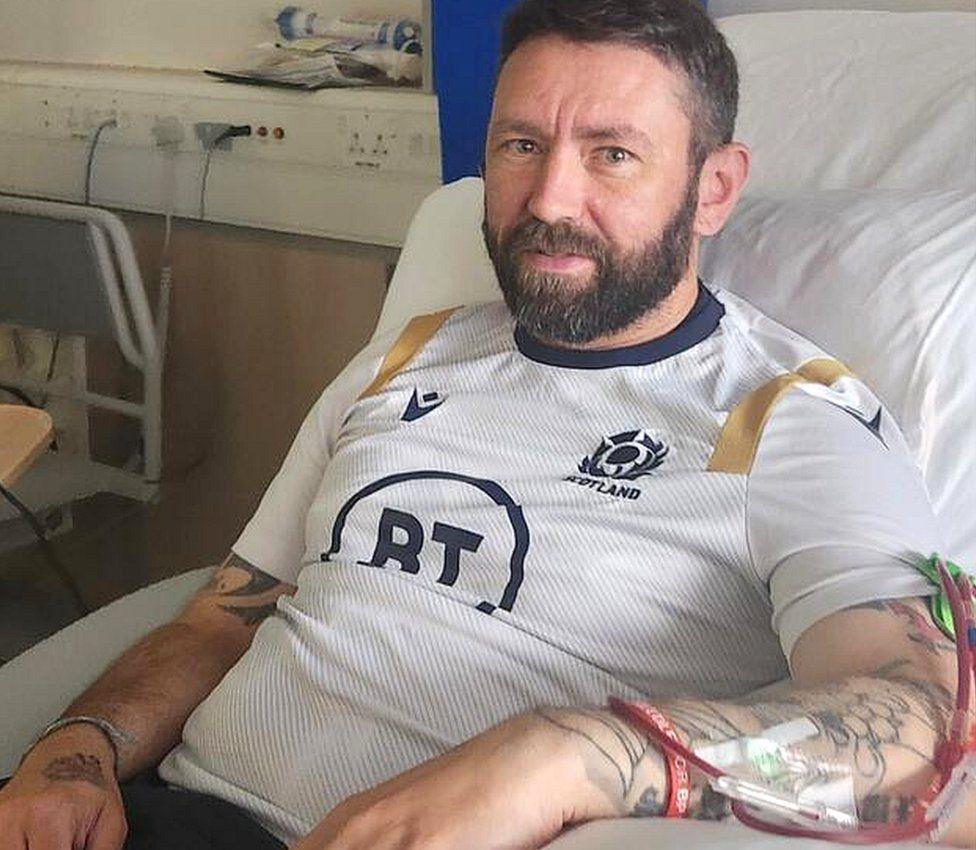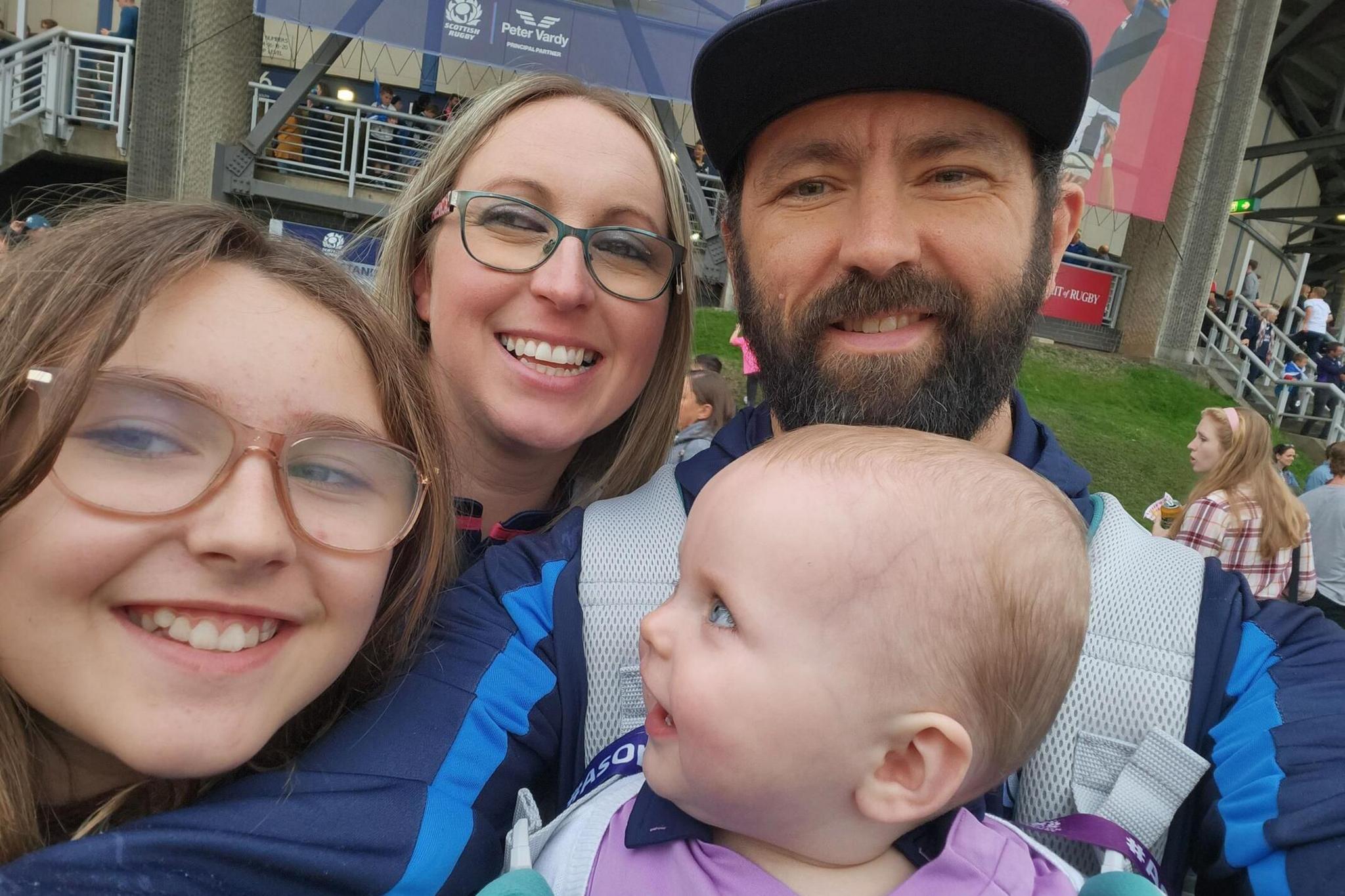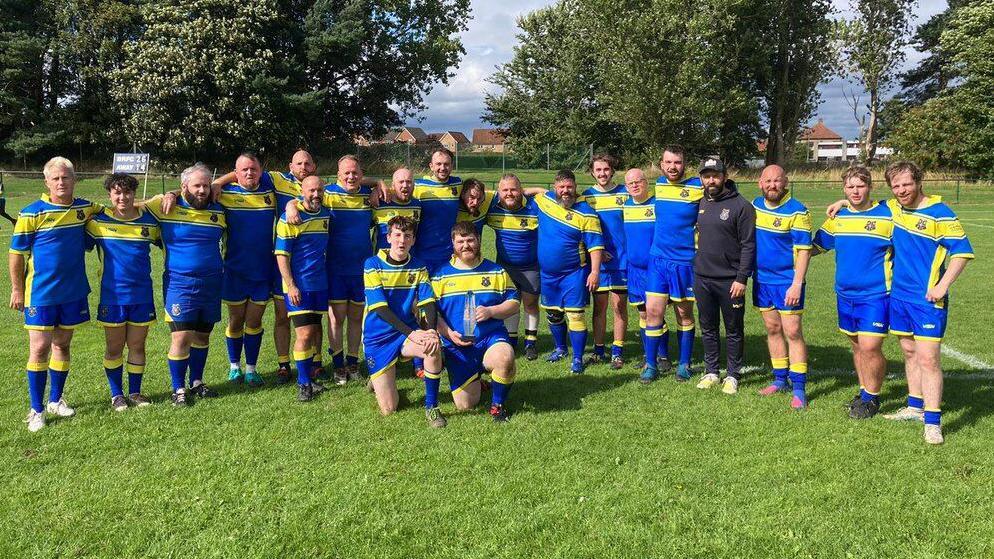I've stayed near hospital for years in case I get a kidney

Grant Anderson has dialysis three times a week
- Published
When Grant Anderson started noticing he couldn't keep up with the other players on the rugby pitch, he just thought he was really unfit.
The 40-year-old was also getting a lot of cramps and was breathless so he went for blood tests which led to the discovery of severe kidney failure.
Four years later he is still on dialysis three times a week and hoping to receive a kidney donor.
The fear of missing out on a possible transplant means Grant, from Bo'ness, never ventures far from hospital.
"If you get a phonecall for a kidney you have to be within four hours of where the kidney is," he told BBC Scotland.
"You have to be ready to go as soon as you get a call.
"It really ties your life and everything revolves around this so you can't go anywhere."

Grant Anderson with his family at Murrayfield Stadium to watch Scotland play rugby
For four years the father-of-two has been having dialysis, a procedure to remove waste products and excess fluid from the blood when the kidneys stop working properly.
All the while he is waiting for a kidney to become available.
"It's like carrying a weight around," he says.
"No matter what ideas I have it always comes back to I've got this so I can't really do much."
Grant says he was an active sportsman but the situation has left him feeling depressed.
"The mental health aspect is probably one of the the biggest things that you don't realise about having kidney failure until it happens to you," he says.
"We can't travel abroad and we have to plan everything around my health."
He says he fears his children are missing out on things that their friends have had the chance to do.
"I get very introverted," he says. "I don't like inflicting it on anyone else.
"My wife used to go nuts that I wouldn't talk about it. It's not a reflection on them I just like the solitude of it."

Doctors told Grant to stop playing rugby so now he coaches Bo'ness Rugby Club
Grant does not know when he will receive a kidney.
The donor kidneys are in short supply with the average wait time for a transplant being more than two-and-a-half years.
However, some patients wait longer than others due to the process of matching patients with donors.
Grant gives a blood and tissue sample every month which goes into a database in the hope there is a match with a kidney donor.
In 2022, 247 patients in Scotland received a kidney transplant, of which a third were from a living donor.
However, there were 2,211 patients on dialysis and 379 waiting for a transplant, according to the most up-to-date figures.

Grant with his wife, children, parents and brother at the end of his last ever rugby match playing for Edinburgh Inclusive Rugby Team
Grant says he chose not to ask his family for a live kidney donation due to "the risks behind it".
"My brother did offer but it would change his life forever," he says.
"And there is no guarantee it would work, so I wouldn't want to put him through that."
So until a matching donor becomes available, the gruelling routine of dialysis is necessary to keep him alive.
Grant is hooked up to a machine in hospital three times a week, each time for three or four hours.
He says it leaves him feeling like he's been in a washing machine - clean but thrown about.
"You just have to cope with it, there is no other way round it," he says.
"There is nothing you can do, you just have to do it.
"You wish it would just go away but you are anchored to it and you have to do it because the alternative is pretty grim."
A new kidney would mean Grant could stop dialysis and return to his normal life.
"When you feel at your worst you have no energy," he says.
"Losing the active side of my life hurt the most.
"After you get your kidney you don't have to have dialysis and you don't have to stick to the dialysis diet," he says.
For the past four years he has had to limit salts and phosphates, which means a huge list of banned foods and tiny portions of potatoes, peanuts and bananas.
He said he has spent periods feeling very down as a result but now when he feels like that he tries to force himself out on his skateboard, bike or paddleboard.
Dr Aisling McMahon, executive director of research at Kidney Research UK, said: "When they finally receive the call that a transplant is available, it's vital that they get to the hospital as quickly as possible to avoid the risk of missing out on a life-changing organ, as with each passing moment a donor kidney begins to deteriorate."